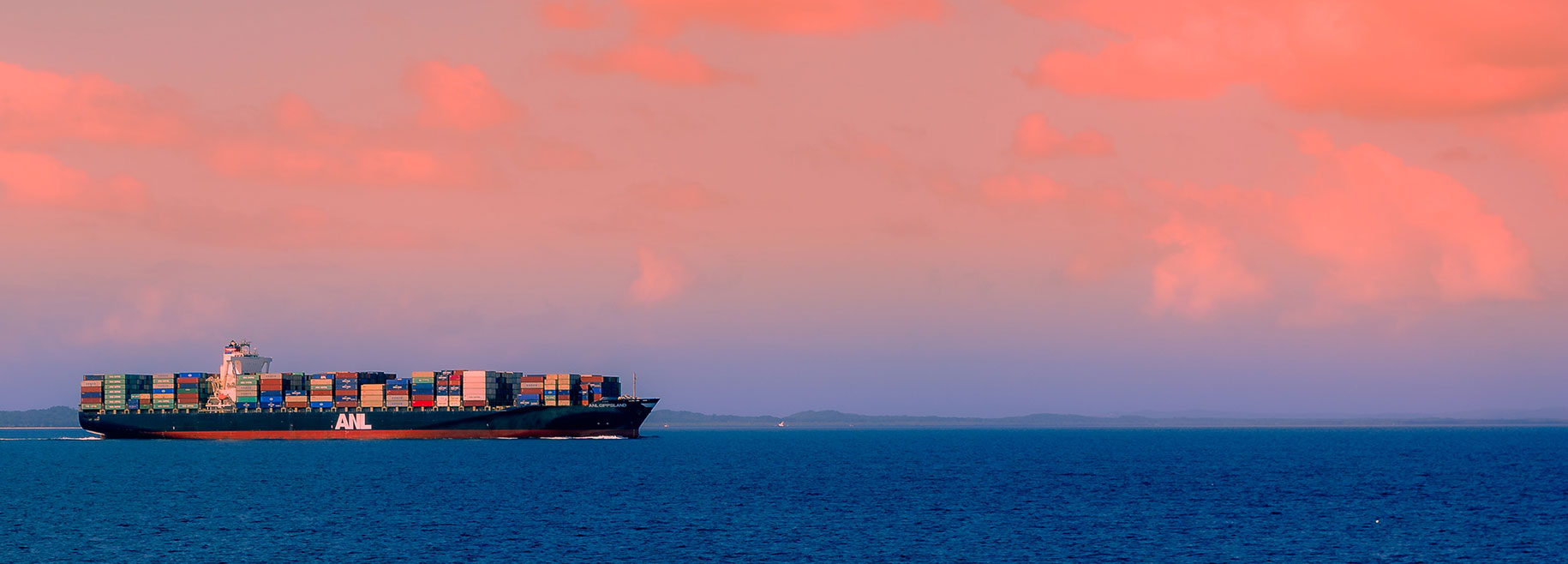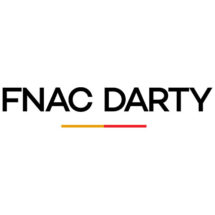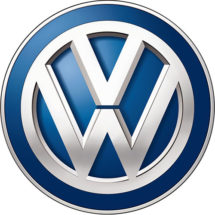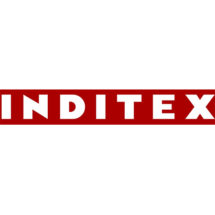Array
(
[campagne_initialisee] => 1
[interpellation_twitter_it] =>
[interpellation_facebook_it] =>
[interpellation_mail_titre_it] =>
[interpellation_mail_message_it] =>
[interpellation_twitter_pt] =>
[interpellation_facebook_pt] =>
[interpellation_mail_titre_pt] =>
[interpellation_mail_message_pt] =>
[interpellation_twitter_fr] => , vos produits parcourent le monde par navire. Que faites-vous pour évaluer et réduire les impacts du transport maritime sur les cétacés, l'air & l'eau, le climat dans votre chaine de valeur? @Green_Marine_Eu #GreenShippingForGoods #BlackFriday
[interpellation_twitter_en] => , ships are used to transport your goods around the world. But how do you assess and reduce the impacts of shipping on cetaceans, air & water and climate in your value chain? @Green_Marine_Eu #GreenShippingForGoods #BlackFriday
[interpellation_twitter_de] => , Ihre Produkte reisen per Schiff um die Welt. Was tun Sie, um die Auswirkungen der Schifffahrt auf Wale, Luft und Wasser sowie das Klima in Ihrer Wertschöpfungskette zu bewerten und zu verringern? @Green_Marine_Eu #GreenShippingForGoods #BlackFrida
[interpellation_twitter_sp] => , sus productos recorren el mundo en buques. ¿Qué hacen para evaluar y reducir los impactos del transporte marítimo en cetáceos, aire, agua y clima en su cadena de valor? @Green_Marine_Eu #GreenShippingForGoods #BlackFriday
[interpellation_facebook_fr] => , vos marchandises parcourent le monde par navire. Le transport maritime a un impact important sur l'océan, tant sur le climat que la qualité de l'eau, de l'air ou la biodiversité. Les entreprises utilisatrices du transport maritime ont leur responsabilité dans ces catastrophes environnementales et ont également le devoir de surveiller ces impacts dans leur chaîne de valeur pour en réduire la portée. Que faites-vous pour accélérer la transformation du transport maritime ?
Votre entreprise doit dialoguer avec ses prestataires de transport pour exercer une meilleure vigilance sur tous les impacts du transport maritime. Le label Green Marine Europe peut être un outil de dialogue et d'amélioration continue pour les entreprises désireuses de transformer leurs pratiques.
#GreenShippingForGoods #BlackFriday
[interpellation_mail_titre_fr] => Que faites-vous pour accélérer la transformation du transport maritime ?
[interpellation_mail_titre_en] => What are you doing to accelerate the transformation of shipping?
[interpellation_mail_titre_de] => Was tun Sie, um die Transformation der Schifffahrt zu beschleunigen?
[interpellation_mail_titre_sp] => ¿Qué está haciendo para acelerar la transformación del transporte marítimo?
[interpellation_mail_message_fr] => Monsieur,
Votre entreprise est implantée sur plusieurs continents et fait usage du transport maritime pour transporter ses marchandises du pays de production à ses marchés. Et comme chaque année, le Black Friday a intensifié les échanges au plus grand détriment de l'océan.
Le transport maritime a un impact important sur l'océan. Non seulement les navires contribuent au changement climatique par l'émission de gaz à effet de serre. Mais ce n'est que la partie émergée de l'iceberg: les navires détériorent la qualité de l'air par l'émission d'oxyde de soufre et d'oxyde d'azote. Ils mettent en danger de larges populations de cétacés en générant un bruit sous-marin assourdissant et en entrant en collision avec eux. Les déchets émis par les navires ou les pertes de conteneurs compromettent la vie des oiseaux et des poissons. Les dégazages ou les mauvaises gestions des eaux huileuses contribuent à polluer l'eau de mer et à fragiliser la faune et la flore marine. Et même la fin de vie des navires - souvent sur des plages en dehors de tout contrôle réglementaire - est un drame à la fois pour le littoral qui les accueillent et pour les populations qui se chargent de leur démantèlement dans une grande précarité.
Êtes-vous vraiment certain de ce qui se passe en mer quand vos produits sont transportés? Les entreprises utilisatrices du transport maritime ont leur responsabilité dans ces catastrophes environnementales et ont également le devoir de surveiller ces impacts dans leur chaine de valeur pour en réduire la portée.
Que faites-vous pour accélérer la transformation du transport maritime ? Un dialogue avec vos prestataires de transport est nécessaire pour exercer une meilleure vigilance sur tous les impacts du transport maritime.
Le label Green Marine Europe peut être un outil de dialogue et d'amélioration continue pour les entreprises désireuses de transformer leurs pratiques. Contactez greenmarine@surfrider.eu pour plus d'informations.
Cordialement,
[interpellation_mail_message_en] => Dear Sir,
Your company operates in many continents and use maritime transport to ship its goods from the manufacturing country to its sales areas. Black Friday has intensified trade at the expense of the ocean, as it does every year.
Maritime shipping has a significant impact on the ocean. Ships do not simply contribute to climate change through the emission of greenhouse gases. In fact, this is just the tip of the iceberg: ships also worsen air quality through the emission of sulfur dioxide and nitrogen oxide. They endanger large populations of cetaceans by emitting deafening underwater noise and colliding with them. Both birds and fishes are endangered by waste coming from ships and lost containers. Degassing or poor management of oily water pollute sea water and weaken marine life. Even when ships are no longer useful – often left on beaches under no legal control – this is a tragedy both for the coastline where they are located and for the very precarious people who are responsible for dismantling these ships.
Are you sure to be aware of the consequences arising from the shipping of your goods in the sea?
Companies using maritime shipping have a responsibility for these environmental disasters and also have a duty to monitor these impacts in their value chain to reduce their significance.
What is your plan to accelerate the maritime shipping transformation? It is important that you discuss with your transport providers to keep a better eye on all the impacts of maritime transport in its value chain. The Green Marine Europe label can be used as a tool for discussion and continuous improvement for companies wishing to improve their practices. Contact greenmarine@surfrider.eu for more information.
Sincerely,
[interpellation_mail_message_de] => Sehr geehrte Damen und Herren,
Ihre Firma ist auf mehreren Kontinenten vertreten und nutzt den Seeverkehr, um Waren vom Herstellungsland zu seinen Märkten zu transportieren. Und wie jedes Jahr hat der Black Friday den Handel zum großen Nachteil der Ozeane intensiviert.
Die Schifffahrt hat erhebliche Auswirkungen auf den Ozean. Schiffe tragen durch ihren Ausstoß von Treibhausgasen zum Klimawandel bei. Doch das ist nur die Spitze des Eisbergs: Schiffe verschlechtern die Luftqualität durch den Ausstoß von Schwefel- und Stickoxiden. Sie gefährden große Walpopulationen, indem sie ohrenbetäubenden Unterwasserlärm erzeugen oder mit ihnen kollidieren. Abfälle von Schiffen und verloren gegangene Container gefährden Vögel und Fische. Die Verklappung oder schlechte Handhabung von ölhaltigem Wasser trägt zur Verschmutzung des Meerwassers und zur Schädigung der Meeresflora und -fauna bei. Und auch das Ende der Lebensdauer von Schiffen - oft an Stränden ohne jegliche behördliche Kontrolle - ist eine Tragödie, sowohl für die Küsten, an denen sie liegen, als auch für die Menschen, die Abwrackung in einer sehr prekären Situation übernehmen.
Wissen Sie wirklich, was auf See während des Transports Ihrer Produkte passiert? Unternehmen, die den Seeverkehr nutzen, tragen Mitverantwortung für diese Umweltkatastrophen. Sie sind daher dazu verpflichtet, die Umwelt-Auswirkungen entlang der Wertschöpfungskette zu überwachen und ihre Tragweite zu verringern.
Was tun Sie, um den Umweltfortschritt im Seeverkehr zu beschleunigen? Sie müssen mit ihren Transportunternehmen kommunizieren, um alle Umwelt-Auswirkungen des Seeverkehrs in ihrer Wertschöpfungskette besser zu überwachen.
Das "Green Marine Europe"-Gütesiegel kann ein Instrument des Dialogs sein und zur kontinuierlichen Verbesserung für Unternehmen dienen, die ihre Praktiken ändern wollen. Für weitere Informationen wenden Sie sich bitte an greenmarine@surfrider.eu.
[interpellation_mail_message_sp] => Estimado Señor,
Su empresa cuenta con presencia en varios continentes, y recurre al transporte marítimo para llevar sus mercancías desde los sitios de producción hasta los puntos de venta. Y como cada año, el Black Friday intensifica la frecuencia del transporte, a costa de los océanos.
El transporte marítimo tiene un impacto grave en los océanos. Ante todo, porque los buques contribuyen a acelerar los cambios climáticos, a través la emisión de gases de efecto invernadero. Pero eso, sólo es la punta del iceberg: los buques también deterioran la calidad del aire, emitiendo óxido de azufre y óxido de nitrógeno. Ponen en peligro grandes grupos de cetáceos, generando ruidos submarinos insostenibles o chocando contra ellos. Los desechos que producen los buques o las pérdidas de contenedores comprometen la vida de pájaros y peces. La desgasificación o la gestión inadecuada de residuos oleosos contribuyen a la contaminación marina, debilitando tanto la fauna como la flora marítima. Incluso cuando llegan al final de su ciclo de vida – lo que suele ocurrir en las playas, sin control reglamentario – representan una grave amenaza tanto para el litoral como para las comunidades que se tienen que encargar de desmantelarlos bajo condiciones precarias.
¿Qué sabes a ciencia cierta de aquello que sucede en el mar cuando se transportan tus productos? Las empresas que utilizan el transporte marítimo también son responsables de esas catástrofes medioambientales, y es su deber tener en cuenta la gravedad de esos impactos en el desarrollo de su cadena de valor, para reducir su alcance.
¿Qué haces para acelerar la transformación del transporte marítimo? Hay que abrir el diálogo con sus proveedores de transporte para vigilar todos los impactos del transporte marítimo en su cadena de valor.
El etiquetado Green Marine Europe puede constituir una herramienta de diálogo y de mejora continua para las empresas que quieren transformar sus prácticas. Para más información, contacten a greenmarine@surfrider.eu.
Saludos cordiales,
[interpellation_facebook_en] => , ships are used to transport your goods around the world. Maritime shipping has a significant impact on the ocean, climate, water & air quality and biodiversity. Companies using maritime shipping have a responsibility for these environmental disasters and also have a duty to monitor these impacts in their value chain to reduce their significance. What is your plan to accelerate the maritime shipping transformation?
Your company has to discuss with its transport providers to keep a better eye on all the impacts of maritime shipping in its value chain. The Green Marine Europe label can be used as a tool for discussion and continuous improvement for companies wishing to improve their practices.
#GreenShippingForGoods #BlackFriday
[interpellation_facebook_de] => , Ihre Waren reisen per Schiff um die Welt. Der Seeverkehr hat erhebliche Auswirkungen auf die Ozeane, auf das Klima, die Wasserqualität, die Luftqualität und die biologische Vielfalt. Unternehmen, die den Seeverkehr nutzen, tragen Mitverantwortung für diese Umweltkatastrophen und stehen in der Pflicht, diese Auswirkungen entlang ihrer Wertschöpfungskette zu überwachen, um sie zu verringern. Was tun Sie, um die Umgestaltung des Seeverkehrs zu beschleunigen?
Ihre Firma muss mit seinen Transportunternehmen in einen Dialog treten, um alle Auswirkungen des Seeverkehrs stärker zu berücksichtigen. Das "Green Marine Europe"-Gütesiegel kann ein Instrument für den Dialog sein und zur kontinuierlichen Verbesserung von Unternehmen dienen, die ihre Praktiken ändern wollen.
#GreenShippingForGoods #BlackFriday
[interpellation_facebook_sp] => , sus productos recorren el mundo en buques. El transporte marítimo tiene un impacto importante en el océano, tanto respecto al clima como a la calidad del agua, del aire o de la biodiversidad. Compañías que usan transporte marítimo tienen una responsabilidad en esas catástrofes medioambientales, y es su deber tener en cuenta esos impactos en su cadena de valor, para reducir su alcance. ¿Qué hacen para acelerar la transformación del transporte marítimo?
Su empresa tiene que abrir el diálogo con sus proveedores de transporte para vigilar mejor todos los impactos del transporte marítimo. El etiquetado Green Marine Europe puede ser una herramienta de diálogo y de mejora continua para las compañías que desean transformar sus prácticas
#GreenShippingForGoods #BlackFriday
)
1
, vos marchandises parcourent le monde par navire. Le transport maritime a un impact important sur l'océan, tant sur le climat que la qualité de l'eau, de l'air ou la biodiversité. Les entreprises utilisatrices du transport maritime ont leur responsabilité dans ces catastrophes environnementales et ont également le devoir de surveiller ces impacts dans leur chaîne de valeur pour en réduire la portée. Que faites-vous pour accélérer la transformation du transport maritime ?
Votre entreprise doit dialoguer avec ses prestataires de transport pour exercer une meilleure vigilance sur tous les impacts du transport maritime. Le label Green Marine Europe peut être un outil de dialogue et d'amélioration continue pour les entreprises désireuses de transformer leurs pratiques.
#GreenShippingForGoods #BlackFriday
Que faites-vous pour accélérer la transformation du transport maritime ?
What are you doing to accelerate the transformation of shipping?
Was tun Sie, um die Transformation der Schifffahrt zu beschleunigen?
¿Qué está haciendo para acelerar la transformación del transporte marítimo?
Monsieur,
Votre entreprise est implantée sur plusieurs continents et fait usage du transport maritime pour transporter ses marchandises du pays de production à ses marchés. Et comme chaque année, le Black Friday a intensifié les échanges au plus grand détriment de l'océan.
Le transport maritime a un impact important sur l'océan. Non seulement les navires contribuent au changement climatique par l'émission de gaz à effet de serre. Mais ce n'est que la partie émergée de l'iceberg: les navires détériorent la qualité de l'air par l'émission d'oxyde de soufre et d'oxyde d'azote. Ils mettent en danger de larges populations de cétacés en générant un bruit sous-marin assourdissant et en entrant en collision avec eux. Les déchets émis par les navires ou les pertes de conteneurs compromettent la vie des oiseaux et des poissons. Les dégazages ou les mauvaises gestions des eaux huileuses contribuent à polluer l'eau de mer et à fragiliser la faune et la flore marine. Et même la fin de vie des navires - souvent sur des plages en dehors de tout contrôle réglementaire - est un drame à la fois pour le littoral qui les accueillent et pour les populations qui se chargent de leur démantèlement dans une grande précarité.
Êtes-vous vraiment certain de ce qui se passe en mer quand vos produits sont transportés? Les entreprises utilisatrices du transport maritime ont leur responsabilité dans ces catastrophes environnementales et ont également le devoir de surveiller ces impacts dans leur chaine de valeur pour en réduire la portée.
Que faites-vous pour accélérer la transformation du transport maritime ? Un dialogue avec vos prestataires de transport est nécessaire pour exercer une meilleure vigilance sur tous les impacts du transport maritime.
Le label Green Marine Europe peut être un outil de dialogue et d'amélioration continue pour les entreprises désireuses de transformer leurs pratiques. Contactez greenmarine@surfrider.eu pour plus d'informations.
Cordialement,
Dear Sir,
Your company operates in many continents and use maritime transport to ship its goods from the manufacturing country to its sales areas. Black Friday has intensified trade at the expense of the ocean, as it does every year.
Maritime shipping has a significant impact on the ocean. Ships do not simply contribute to climate change through the emission of greenhouse gases. In fact, this is just the tip of the iceberg: ships also worsen air quality through the emission of sulfur dioxide and nitrogen oxide. They endanger large populations of cetaceans by emitting deafening underwater noise and colliding with them. Both birds and fishes are endangered by waste coming from ships and lost containers. Degassing or poor management of oily water pollute sea water and weaken marine life. Even when ships are no longer useful – often left on beaches under no legal control – this is a tragedy both for the coastline where they are located and for the very precarious people who are responsible for dismantling these ships.
Are you sure to be aware of the consequences arising from the shipping of your goods in the sea?
Companies using maritime shipping have a responsibility for these environmental disasters and also have a duty to monitor these impacts in their value chain to reduce their significance.
What is your plan to accelerate the maritime shipping transformation? It is important that you discuss with your transport providers to keep a better eye on all the impacts of maritime transport in its value chain. The Green Marine Europe label can be used as a tool for discussion and continuous improvement for companies wishing to improve their practices. Contact greenmarine@surfrider.eu for more information.
Sincerely,
Sehr geehrte Damen und Herren,
Ihre Firma ist auf mehreren Kontinenten vertreten und nutzt den Seeverkehr, um Waren vom Herstellungsland zu seinen Märkten zu transportieren. Und wie jedes Jahr hat der Black Friday den Handel zum großen Nachteil der Ozeane intensiviert.
Die Schifffahrt hat erhebliche Auswirkungen auf den Ozean. Schiffe tragen durch ihren Ausstoß von Treibhausgasen zum Klimawandel bei. Doch das ist nur die Spitze des Eisbergs: Schiffe verschlechtern die Luftqualität durch den Ausstoß von Schwefel- und Stickoxiden. Sie gefährden große Walpopulationen, indem sie ohrenbetäubenden Unterwasserlärm erzeugen oder mit ihnen kollidieren. Abfälle von Schiffen und verloren gegangene Container gefährden Vögel und Fische. Die Verklappung oder schlechte Handhabung von ölhaltigem Wasser trägt zur Verschmutzung des Meerwassers und zur Schädigung der Meeresflora und -fauna bei. Und auch das Ende der Lebensdauer von Schiffen - oft an Stränden ohne jegliche behördliche Kontrolle - ist eine Tragödie, sowohl für die Küsten, an denen sie liegen, als auch für die Menschen, die Abwrackung in einer sehr prekären Situation übernehmen.
Wissen Sie wirklich, was auf See während des Transports Ihrer Produkte passiert? Unternehmen, die den Seeverkehr nutzen, tragen Mitverantwortung für diese Umweltkatastrophen. Sie sind daher dazu verpflichtet, die Umwelt-Auswirkungen entlang der Wertschöpfungskette zu überwachen und ihre Tragweite zu verringern.
Was tun Sie, um den Umweltfortschritt im Seeverkehr zu beschleunigen? Sie müssen mit ihren Transportunternehmen kommunizieren, um alle Umwelt-Auswirkungen des Seeverkehrs in ihrer Wertschöpfungskette besser zu überwachen.
Das "Green Marine Europe"-Gütesiegel kann ein Instrument des Dialogs sein und zur kontinuierlichen Verbesserung für Unternehmen dienen, die ihre Praktiken ändern wollen. Für weitere Informationen wenden Sie sich bitte an greenmarine@surfrider.eu.
Estimado Señor,
Su empresa cuenta con presencia en varios continentes, y recurre al transporte marítimo para llevar sus mercancías desde los sitios de producción hasta los puntos de venta. Y como cada año, el Black Friday intensifica la frecuencia del transporte, a costa de los océanos.
El transporte marítimo tiene un impacto grave en los océanos. Ante todo, porque los buques contribuyen a acelerar los cambios climáticos, a través la emisión de gases de efecto invernadero. Pero eso, sólo es la punta del iceberg: los buques también deterioran la calidad del aire, emitiendo óxido de azufre y óxido de nitrógeno. Ponen en peligro grandes grupos de cetáceos, generando ruidos submarinos insostenibles o chocando contra ellos. Los desechos que producen los buques o las pérdidas de contenedores comprometen la vida de pájaros y peces. La desgasificación o la gestión inadecuada de residuos oleosos contribuyen a la contaminación marina, debilitando tanto la fauna como la flora marítima. Incluso cuando llegan al final de su ciclo de vida – lo que suele ocurrir en las playas, sin control reglamentario – representan una grave amenaza tanto para el litoral como para las comunidades que se tienen que encargar de desmantelarlos bajo condiciones precarias.
¿Qué sabes a ciencia cierta de aquello que sucede en el mar cuando se transportan tus productos? Las empresas que utilizan el transporte marítimo también son responsables de esas catástrofes medioambientales, y es su deber tener en cuenta la gravedad de esos impactos en el desarrollo de su cadena de valor, para reducir su alcance.
¿Qué haces para acelerar la transformación del transporte marítimo? Hay que abrir el diálogo con sus proveedores de transporte para vigilar todos los impactos del transporte marítimo en su cadena de valor.
El etiquetado Green Marine Europe puede constituir una herramienta de diálogo y de mejora continua para las empresas que quieren transformar sus prácticas. Para más información, contacten a greenmarine@surfrider.eu.
Saludos cordiales,
, ships are used to transport your goods around the world. Maritime shipping has a significant impact on the ocean, climate, water & air quality and biodiversity. Companies using maritime shipping have a responsibility for these environmental disasters and also have a duty to monitor these impacts in their value chain to reduce their significance. What is your plan to accelerate the maritime shipping transformation?
Your company has to discuss with its transport providers to keep a better eye on all the impacts of maritime shipping in its value chain. The Green Marine Europe label can be used as a tool for discussion and continuous improvement for companies wishing to improve their practices.
#GreenShippingForGoods #BlackFriday
, Ihre Waren reisen per Schiff um die Welt. Der Seeverkehr hat erhebliche Auswirkungen auf die Ozeane, auf das Klima, die Wasserqualität, die Luftqualität und die biologische Vielfalt. Unternehmen, die den Seeverkehr nutzen, tragen Mitverantwortung für diese Umweltkatastrophen und stehen in der Pflicht, diese Auswirkungen entlang ihrer Wertschöpfungskette zu überwachen, um sie zu verringern. Was tun Sie, um die Umgestaltung des Seeverkehrs zu beschleunigen?
Ihre Firma muss mit seinen Transportunternehmen in einen Dialog treten, um alle Auswirkungen des Seeverkehrs stärker zu berücksichtigen. Das "Green Marine Europe"-Gütesiegel kann ein Instrument für den Dialog sein und zur kontinuierlichen Verbesserung von Unternehmen dienen, die ihre Praktiken ändern wollen.
#GreenShippingForGoods #BlackFriday
, sus productos recorren el mundo en buques. El transporte marítimo tiene un impacto importante en el océano, tanto respecto al clima como a la calidad del agua, del aire o de la biodiversidad. Compañías que usan transporte marítimo tienen una responsabilidad en esas catástrofes medioambientales, y es su deber tener en cuenta esos impactos en su cadena de valor, para reducir su alcance. ¿Qué hacen para acelerar la transformación del transporte marítimo?
Su empresa tiene que abrir el diálogo con sus proveedores de transporte para vigilar mejor todos los impactos del transporte marítimo. El etiquetado Green Marine Europe puede ser una herramienta de diálogo y de mejora continua para las compañías que desean transformar sus prácticas
#GreenShippingForGoods #BlackFriday
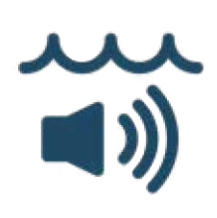


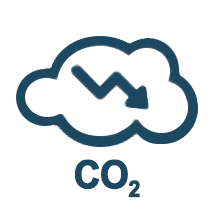
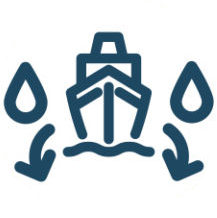

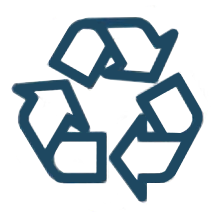
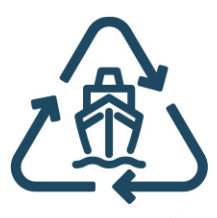

 surfrider.eu
surfrider.eu